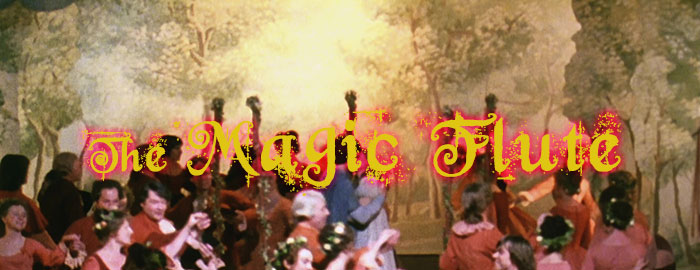

Color, 1975, 138 mins. 10 secs.
Directed by Ingmar Bergman
Starring Ulrik Cold, Josef Köstlinger, Irma Urrila, Håkån Hagegård, Birgit Nordin
BFI (Blu-ray & DVD) (UK RB/R2 HD), Criterion (DVD) (US R1 NTSC), Arthaus (Germany R2 DVD), Gaumont (France R2 PAL)
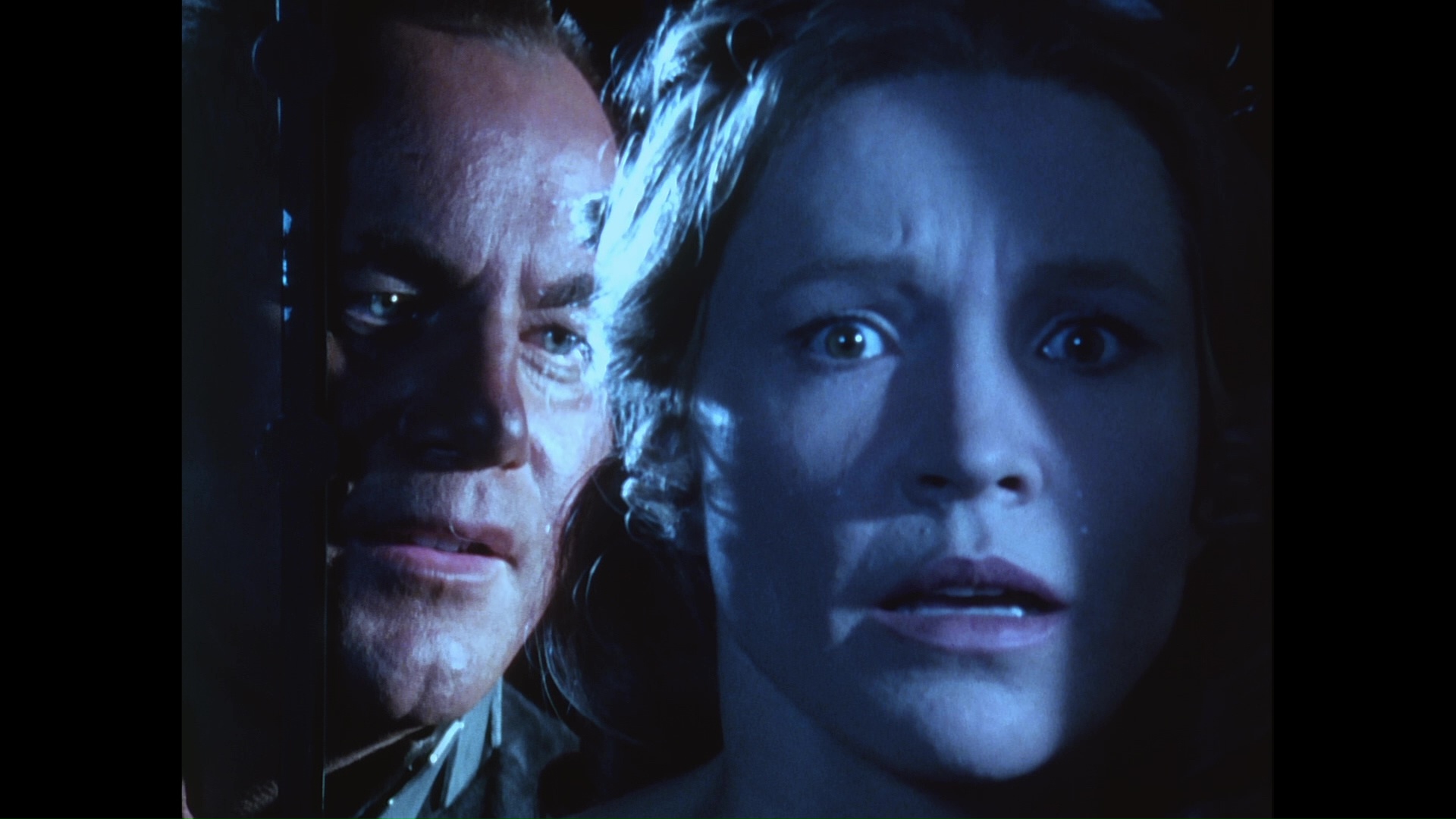 as far from a typical
as far from a typical 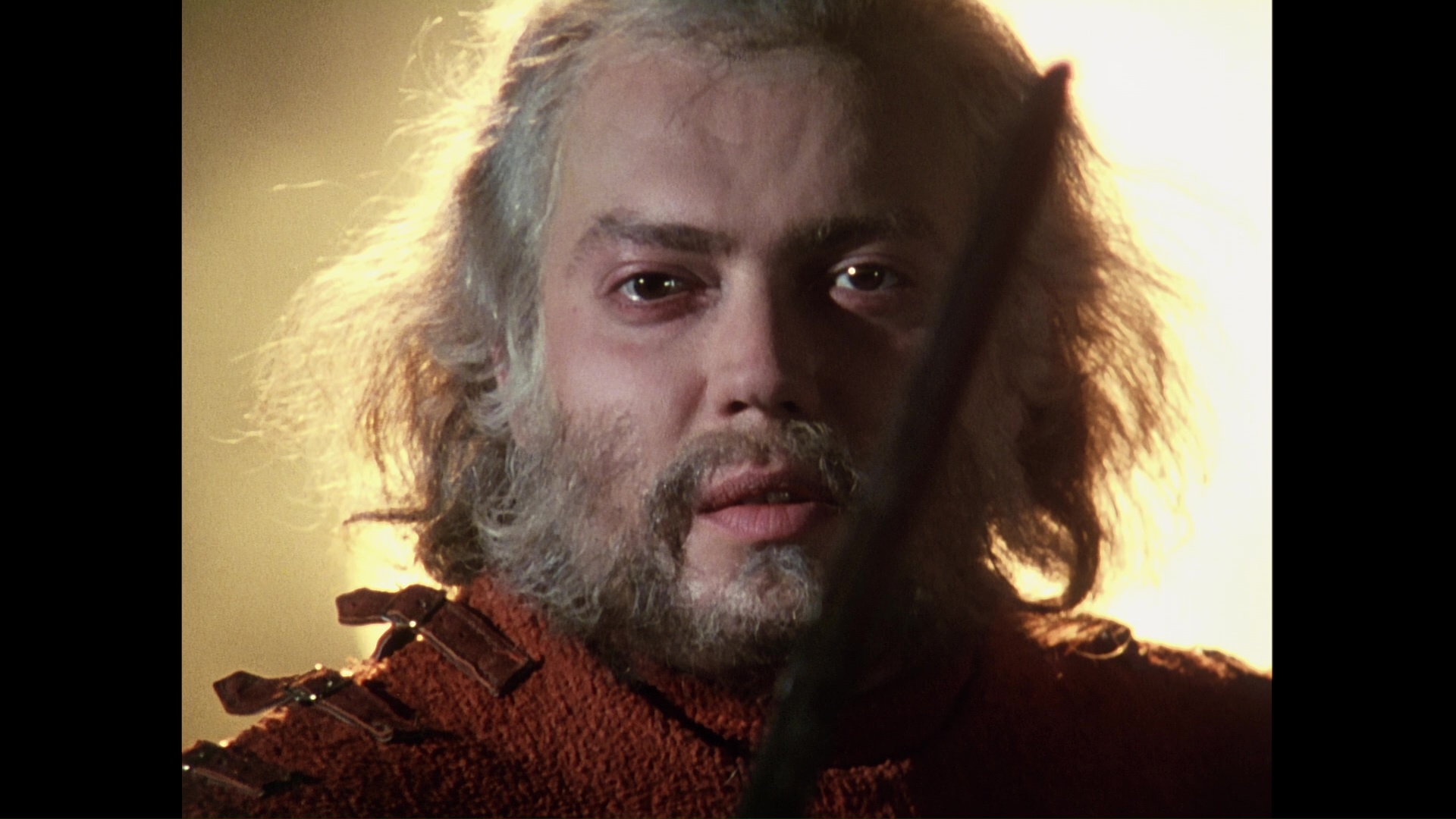 Ingmar Bergman film as possible in the eyes of most critics at the time of its release, The Magic Flute features the director's imagination and playfulness in full force with the chance to fulfill his decades-long dream of filming the legendary Mozart opera in Sweden's Drottningholm Palace Theatre, or what would turn out to be a replica made at the Swedish Film Institute. The opera itself, an engaging work of fairy-tale fantasy, is presented as deliberately theatrical here with many cinematic intrusions to give it a dreamlike atmosphere, both reminding the audience (represented in the overture and a handful of other occasions with people watching the opera, including some familiar Bergman-related faces) of the production they're watching and transcending it into a pure film. The approach wasn't wholly unique at the time since Ken Russell had tried something in the same sandbox with 1971's The Boy Friend, but Bergman's tactic here works like a charm and would go on to obviously influence later films ranging from Andrzej Zulawski's astounding Boris Godounov to Joe Wright's Anna Karenina.
Ingmar Bergman film as possible in the eyes of most critics at the time of its release, The Magic Flute features the director's imagination and playfulness in full force with the chance to fulfill his decades-long dream of filming the legendary Mozart opera in Sweden's Drottningholm Palace Theatre, or what would turn out to be a replica made at the Swedish Film Institute. The opera itself, an engaging work of fairy-tale fantasy, is presented as deliberately theatrical here with many cinematic intrusions to give it a dreamlike atmosphere, both reminding the audience (represented in the overture and a handful of other occasions with people watching the opera, including some familiar Bergman-related faces) of the production they're watching and transcending it into a pure film. The approach wasn't wholly unique at the time since Ken Russell had tried something in the same sandbox with 1971's The Boy Friend, but Bergman's tactic here works like a charm and would go on to obviously influence later films ranging from Andrzej Zulawski's astounding Boris Godounov to Joe Wright's Anna Karenina. 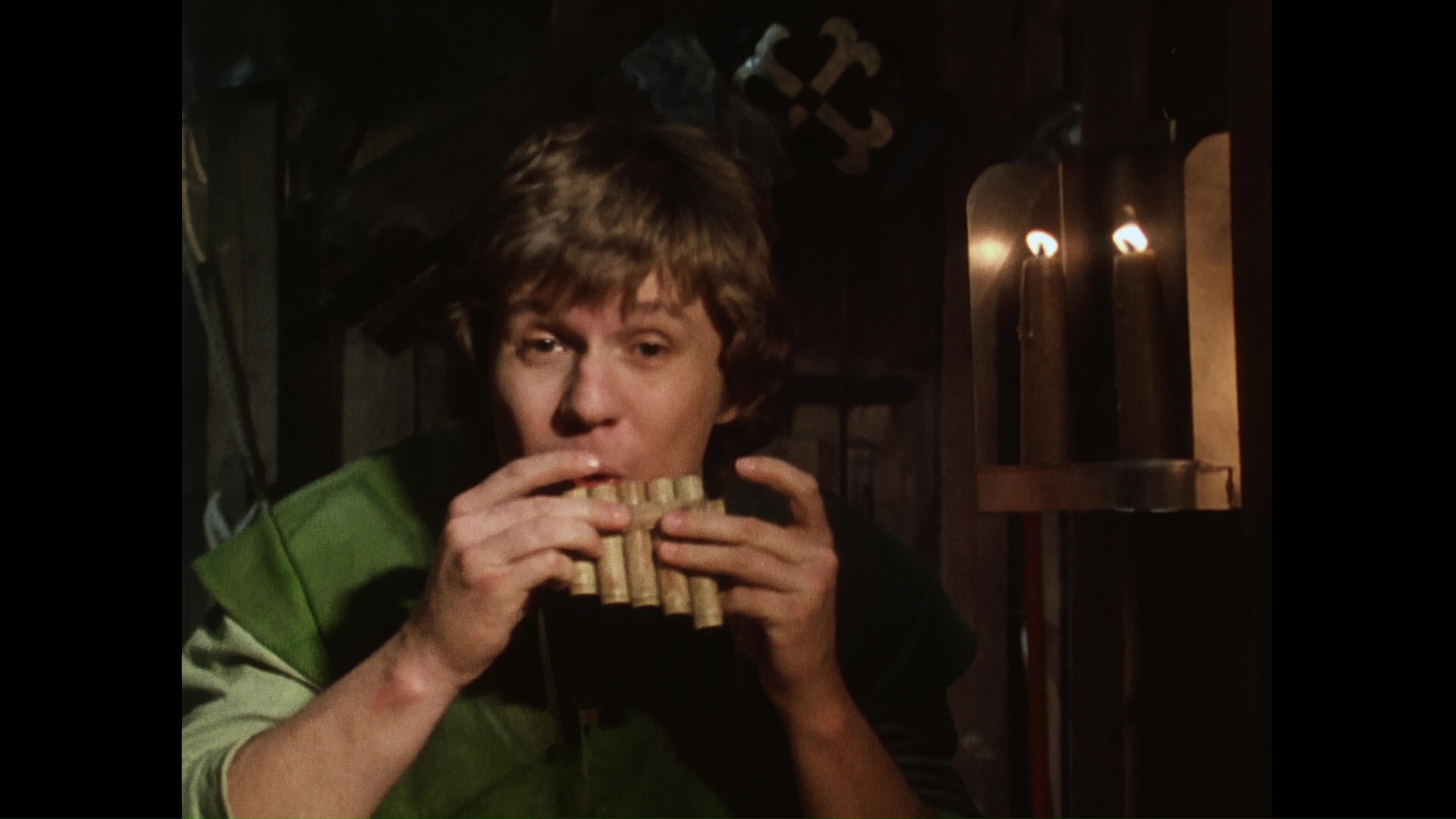 sidekick and audience surrogate. The journey leads through multiple realms and transformations, with both young men on the quest finding a chance to fulfill their heart's
sidekick and audience surrogate. The journey leads through multiple realms and transformations, with both young men on the quest finding a chance to fulfill their heart's  desires.
desires.  now. The much-needed dual-format Blu-ray and DVD release from the BFI is a tremendous upgrade in every possible way and makes it far easier to appreciate the extensive
now. The much-needed dual-format Blu-ray and DVD release from the BFI is a tremendous upgrade in every possible way and makes it far easier to appreciate the extensive 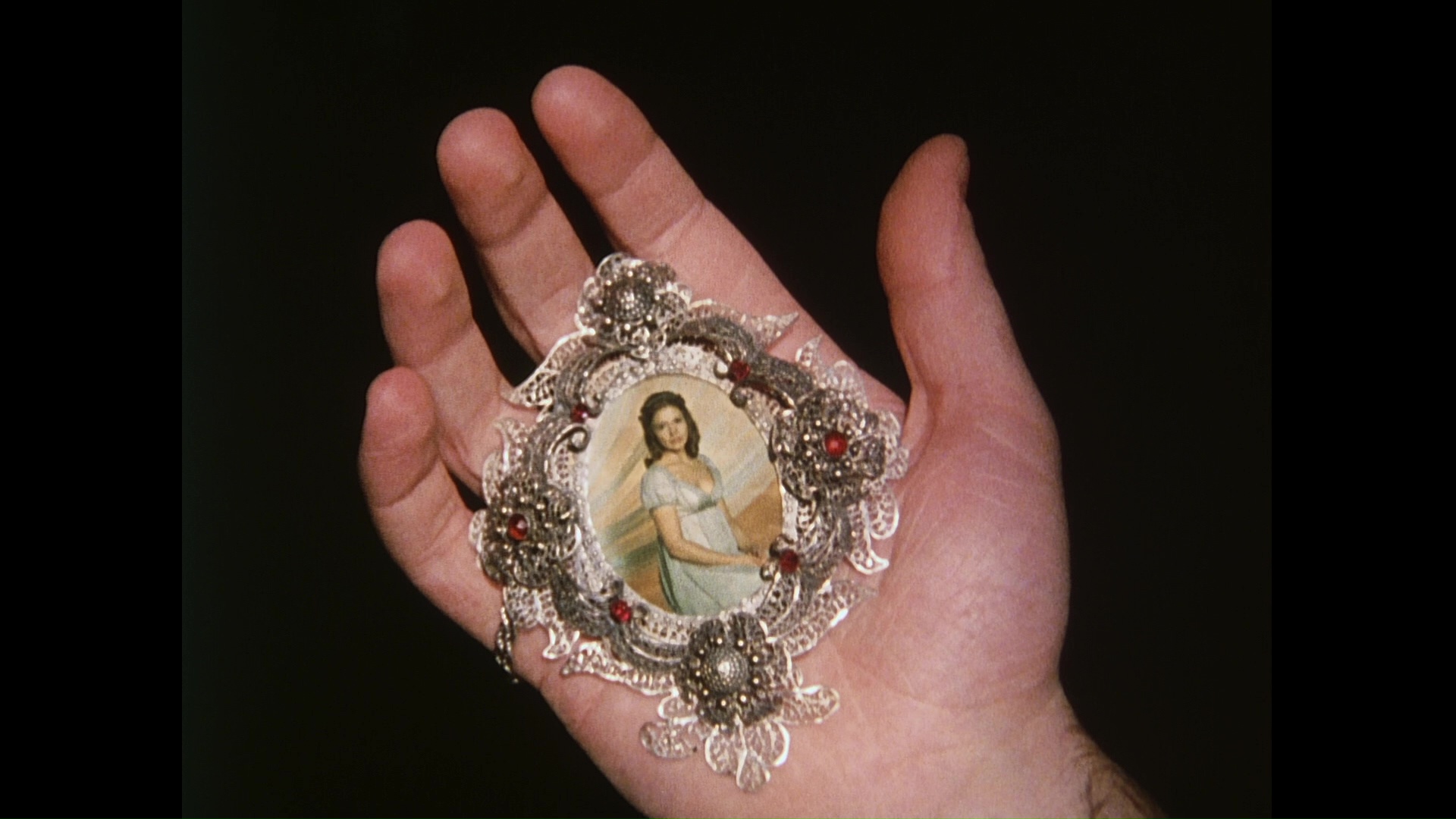 care that went into the film's dense visual textures. All the video noise and dull color has been swept away to provide a fine appreciation of this film that will definitely have viewers coming back for multiple viewings. The restored 24-bit LPCM Swedish 2.0 audio is also in top-notch shape now with optional English subtitles provided. The film has also been given some supplements at long last, though on the video side they're all related to opera instead of Bergman. "Papageno" (11m7s) is a charming 1935 animated short from the now legendary Lotte Reiniger, using her trademark silhouette technique to illustrate a passage of the Mozart opera, while "In Mozart's Footsteps" (11m3s) features a travelogue look at Austria (shot just after its annexation in 1938 by Nazi Germany) hosted by British tourist extraordinarie Lady Dunn. The Anthony Asquith-directed 1955 short film "On Such a Night" (37m10s) features an American tourist named Mr. Cornell (Nightmare's David Knight) narrating his trip from London to Sussex where he ends up having an eye-opening opera visit to see The Marriage of Figaro at the Glyndebourne Opera House, all shot in very vivid color (those greens!). The UK trailer is also included, while the package comes with an insert booklet featuring liner notes by Sameer Rahim and Vic Pratt with credits and notes about the supplements.
care that went into the film's dense visual textures. All the video noise and dull color has been swept away to provide a fine appreciation of this film that will definitely have viewers coming back for multiple viewings. The restored 24-bit LPCM Swedish 2.0 audio is also in top-notch shape now with optional English subtitles provided. The film has also been given some supplements at long last, though on the video side they're all related to opera instead of Bergman. "Papageno" (11m7s) is a charming 1935 animated short from the now legendary Lotte Reiniger, using her trademark silhouette technique to illustrate a passage of the Mozart opera, while "In Mozart's Footsteps" (11m3s) features a travelogue look at Austria (shot just after its annexation in 1938 by Nazi Germany) hosted by British tourist extraordinarie Lady Dunn. The Anthony Asquith-directed 1955 short film "On Such a Night" (37m10s) features an American tourist named Mr. Cornell (Nightmare's David Knight) narrating his trip from London to Sussex where he ends up having an eye-opening opera visit to see The Marriage of Figaro at the Glyndebourne Opera House, all shot in very vivid color (those greens!). The UK trailer is also included, while the package comes with an insert booklet featuring liner notes by Sameer Rahim and Vic Pratt with credits and notes about the supplements. 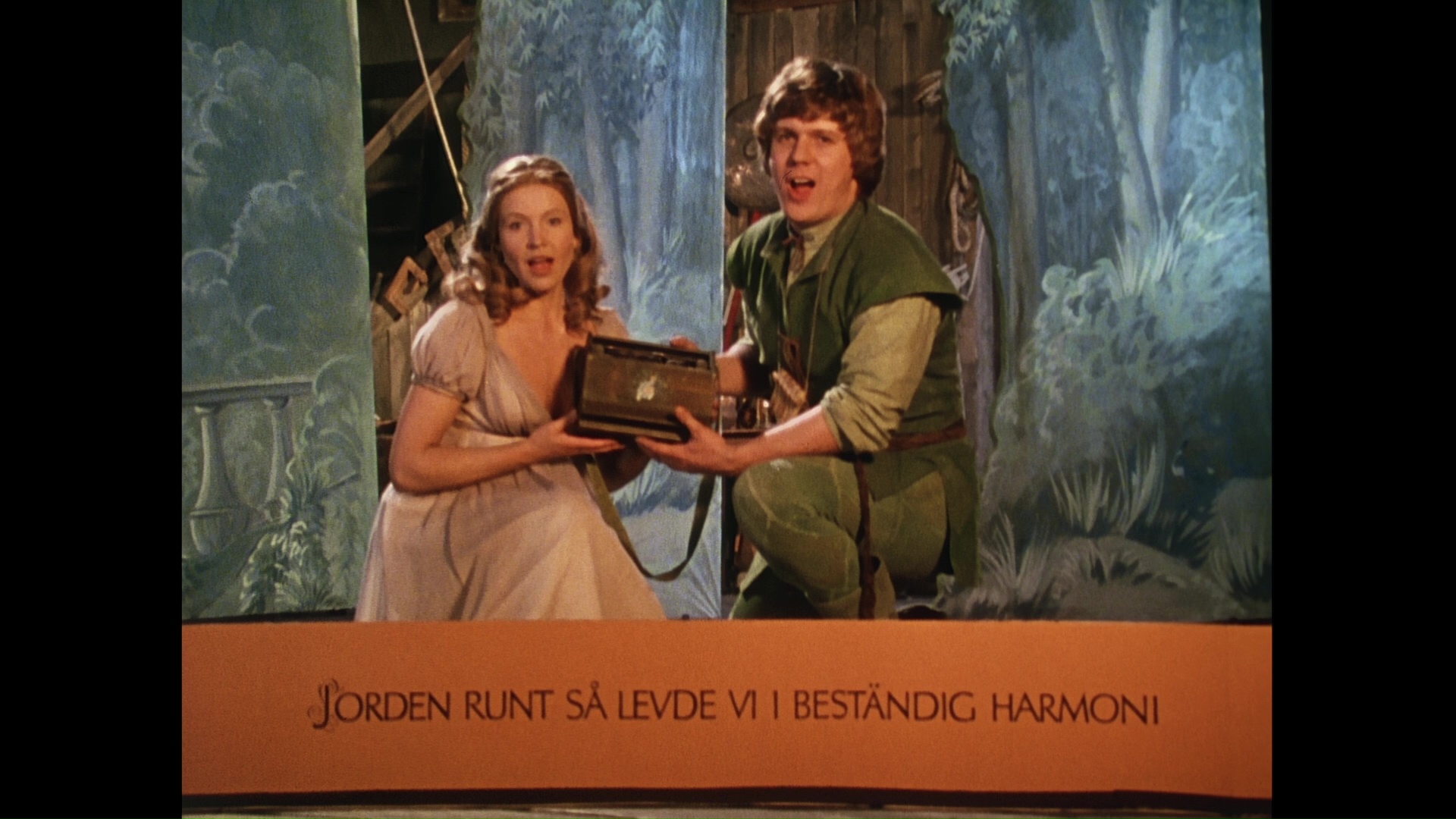
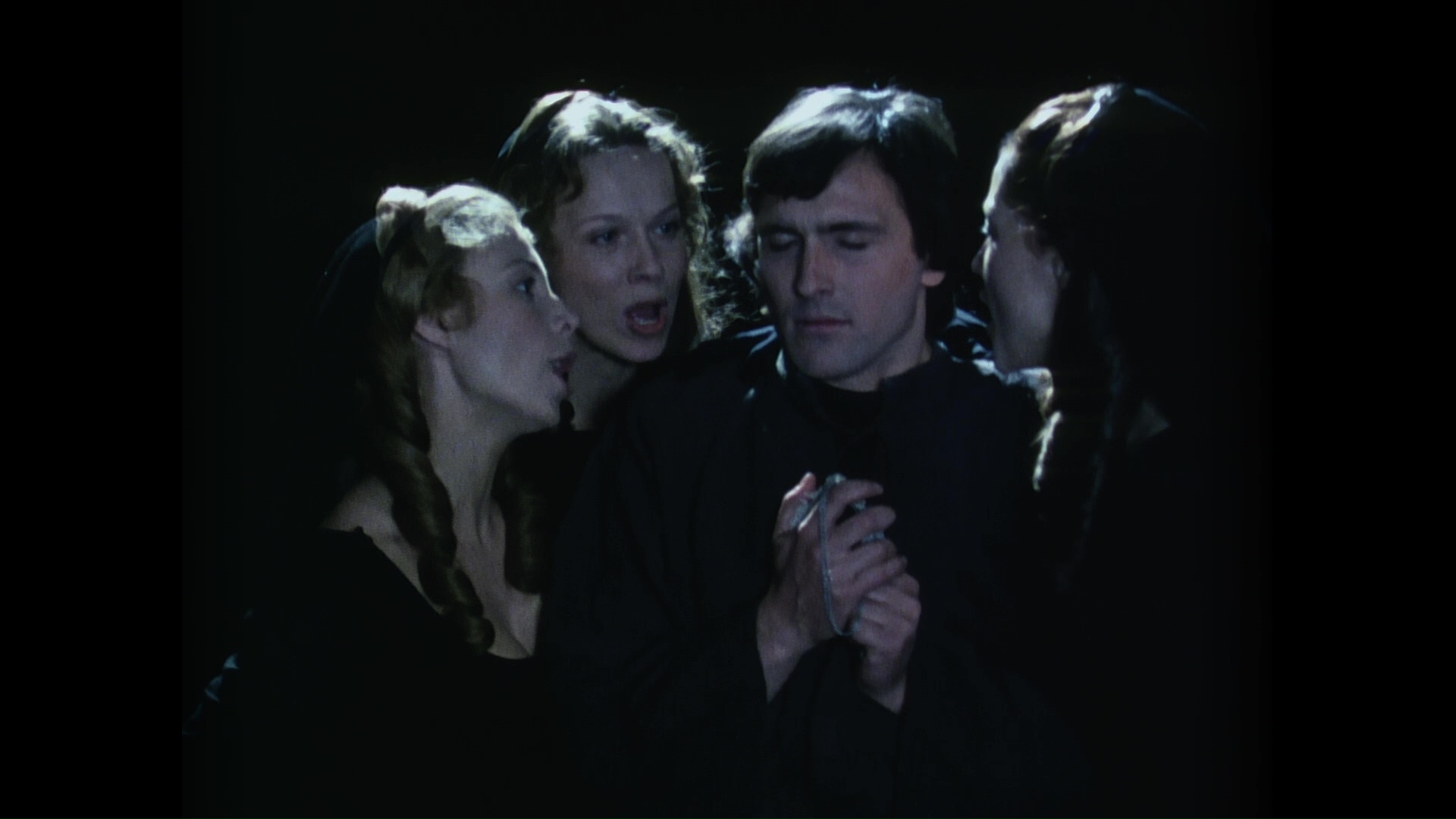

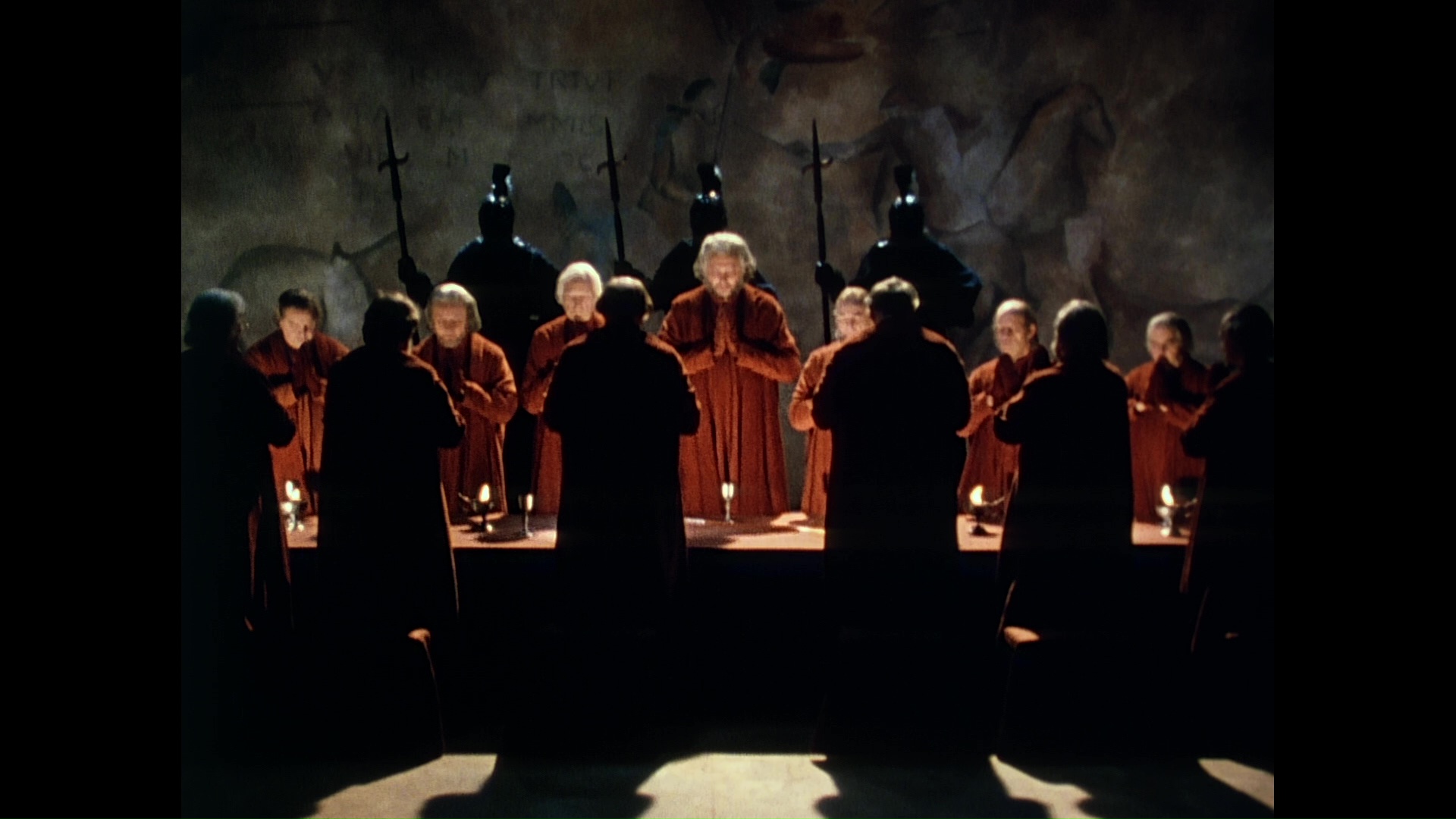

![]()